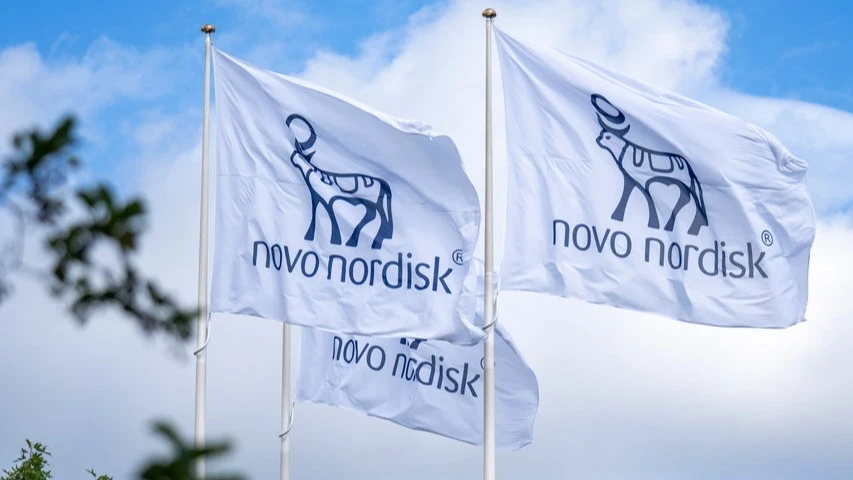Sales of the drug Wegovy increased by 67%. Will this convince Novo Nordisk investors?
After two worsening of the annual forecast and the change of the head of the company, the market is cautious

Danish pharma giant Novo Nordisk reported a 67% rise in sales of its flagship weight loss drug Wegovy in the second quarter. But that did little to calm the market: the company's shares fell almost 2.5%. Amid competition from US Eli Lilly and a weakening position in the US, Novo's overall revenue growth was the same as it had been even before the launch of Wegovy.
Details
Novo Nordisk's second-quarter revenue increased 13% year-on-year at constant prices to DKK 76.86 billion (about $11.9 billion). That was above analysts' consensus forecast -they had expected 76.6 billion kroner, noted CNBC. Still, that pace s the lowest in four years, stresses Bloomberg. The last time the company posted such modest growth was before the U.S. launch of its flagship Wegovy weight loss product.
Sales of the drug rose 67% in the second quarter and brought the company 19.53 billion kronor, slightly short of analysts' estimate of 20 billion kronor. In the first quarter, sales growth was higher - 83%.
The company's net profit amounted to 26.5 billion kronor against market expectations of 26.6 billion.
The company reiterated the lowered full-year forecast it announced last week, thus worsening it for the second time. Novo now expects revenue growth of 8-14% and operating profit growth of 10-16%.
What's bothering Novo
The key challenge for Novo Nordisk remains the U.S. market, which accounts for a significant portion of the company's revenue. Here it faces pressure on several fronts, explains Bloomberg. On the one hand, despite a rebound in supply, patients in the U.S. are still accessing cheap copies of Wegovy through pharmacy chains. They were allowed to make such copies when there was a shortage of the original drug, but now there is no shortage and pharmacies continue to sell them, according to Novo.
On the other hand, competition from US-based Eli Lilly, which is rapidly gaining market share with its drug Zepbound - it entered the market later but has overtaken Wegovy in terms of effectiveness, many doctors believe. According to dataBloomberg, by the end of 2026, Lilly's Zepbound and Mounjaro could overtake Novo Nordisk's best-selling drugs in terms of sales, finally dislodging the Danish company from its leading position in the obesity therapy segment.
What's going on with Novo stock
Wegovy's sales growth has not convinced investors yet: Novo Nordisk shares fell by 2.4% in Copenhagen on August 6. Since the beginning of the year, the company's market value has gone down by 52%. By comparison, Eli Lilly's shares fell by 0.8% over the same period.
After worsening its full-year forecast again on July 29 and appointing an internal candidate as Novo Nordisk's new head rather than an external one as analysts had expected, the company lost about 23% of its market value in a single trading session, marking its worst day in 40 years. Against that backdrop, UBS analyst Matthew Weston rejected a recommendation to buy the pharma giant's shares, Watson's new target was the second lowest of all analysts tracking Novo securities, FactSet shows.
According to data from MarketWatch, half of analysts - 16 out of 32 - still advise investors to buy the Danish company's shares (Buy and Overweight ratings). Another 13 analysts suggest keeping them in the portfolio (Hold), and three suggest selling them (Sell). Wall Street's consensus target price for Novo's U.S. depositary receipts is $77.8 per paper, suggesting a potential upside of more than 60%.
What's next
The Aug. 6 data release was the first detailed look at the quarter that led to a management reshuffle at the company, points out Bloomberg. Its "veteran" CEO Mike Dustdar will take over as CEO effective August 7. He said he was coming into the job "with a sense of urgency, a maximum focus on results and a desire to take the company's ambitions to the next level," reminds CNBC. He will have to regain the confidence of investors who doubt the company can reverse the negative trend, writes Reuters.
This article was AI-translated and verified by a human editor
